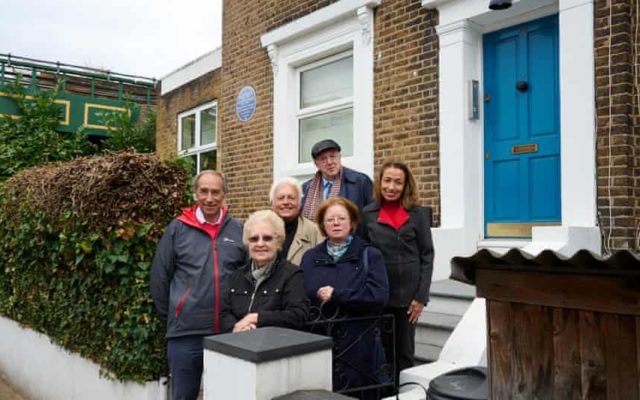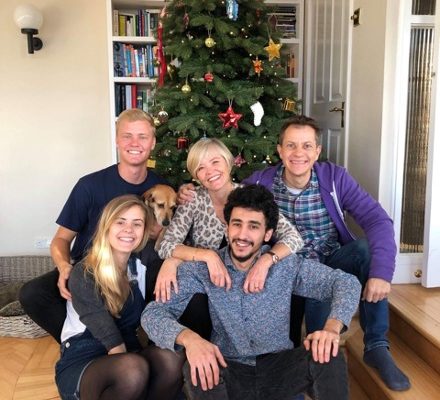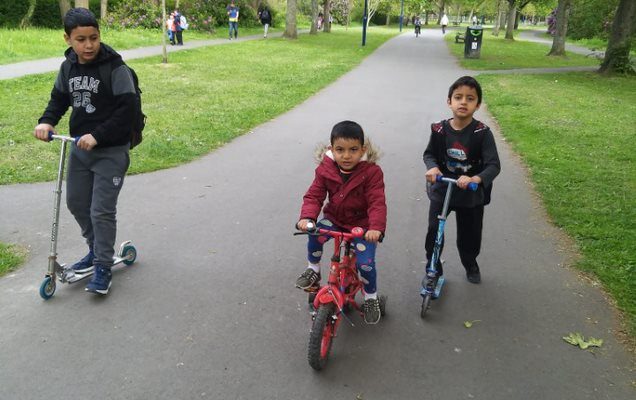Families belong together
Three stories of hope, heartbreak and reunification this International Day of Families.
15.05.24
Photo: © UNHCR/Oxygen Empire Media Production
Families belong together, but when forced to flee, refugee families are sometimes torn apart and remain separated for years – or may never reunite.
These separations have a profound impact on mental health. Reuniting with family members is not only a fundamental right but often the key to restoring their wellbeing and dignity. It is a pressing issue that demands our attention.
States have a responsibility to protect and restore family life for refugees, including through family reunification procedures. UNHCR helps safeguard the fundamental right of refugees to family unity, works to improve access to family reunification procedures and helps to support separated refugee families.
Not all family reunification stories have a happy ending, but on the International Day of Families, we’re highlighting the reality of displaced people around the world.
Mutuhimana’s family

Mutuhimana and baby Alliance. © UNHCR/Blaise Sanyila
38-year-old Mutuhimana, a mother of seven children, picked up the baby she named Alliance whilst fleeing her home in the Democratic Republic of Congo. She found Alliance crying alone on the road.
”I am a mother, my children have grown up, but to see a child alone without an adult under fire, I could not be indifferent. I call on the humanitarians to help me find the parents of Alliance.”
During the massive displacement in 2023, almost 30% of children were unaccompanied or had lost track of their parents. UNHCR and other humanitarians also help separated families reunite to ensure children are cared for and protected.
Sofia’s family

Sofia and one of her children. © UNHCR/Amanda Jufrian
Rohingya refugee and mother-of-six, Sofia, 33, sits with one of her children near a refugee tent at a temporary shelter in Kulam village, Pidie district, Aceh, Indonesia. The shelter is located on a beach, far from local residential areas, with minimal facilities. Sofia and her husband decided to take the boat and leave Bangladesh due to increasing insecurity and a lack of educational opportunities for their children in the camps.
Sofia wishes to be reunited with her eldest child Shofiuddin, who also took a boat to Indonesia several years ago with a relative. Now aged 15, he attends school in Medan, the capital of North Sumatra province. She hasn’t seen her son in many years.
Mohamed’s family

Mohamed and his cousin Aamin. © UNHCR/Diana Diaz
16-year-old Mohamed fled violence and conflict in his hometown of Laascaanood, Somalia, alone.
When shootings started, Mohamed was working in the shop he used to care for to make ends meet. He had lost his parents years ago and moved in with his cousin Aamin, 19, who looked after him.
“I didn’t know if I would ever see him again or where he was,” said Aamin.
Mohamed had seen people fleeing and got in a car with strangers. “I was very afraid, I didn’t know what to do.”
The two met again in exile in Ethiopia, and they are both in Mirqaan settlement where they hope to build a bright future. “I want to go to school and study English so I can talk to other people,” said Mohamed. “I wish I could go to University and study engineering. Maybe I can invent something to help in construction,” said Aamin.
—
Families deserve to be together. Families have a right to be together.
Help UNHCR provide lifesaving aid and support to forcibly displaced families around the world. Take action today.




